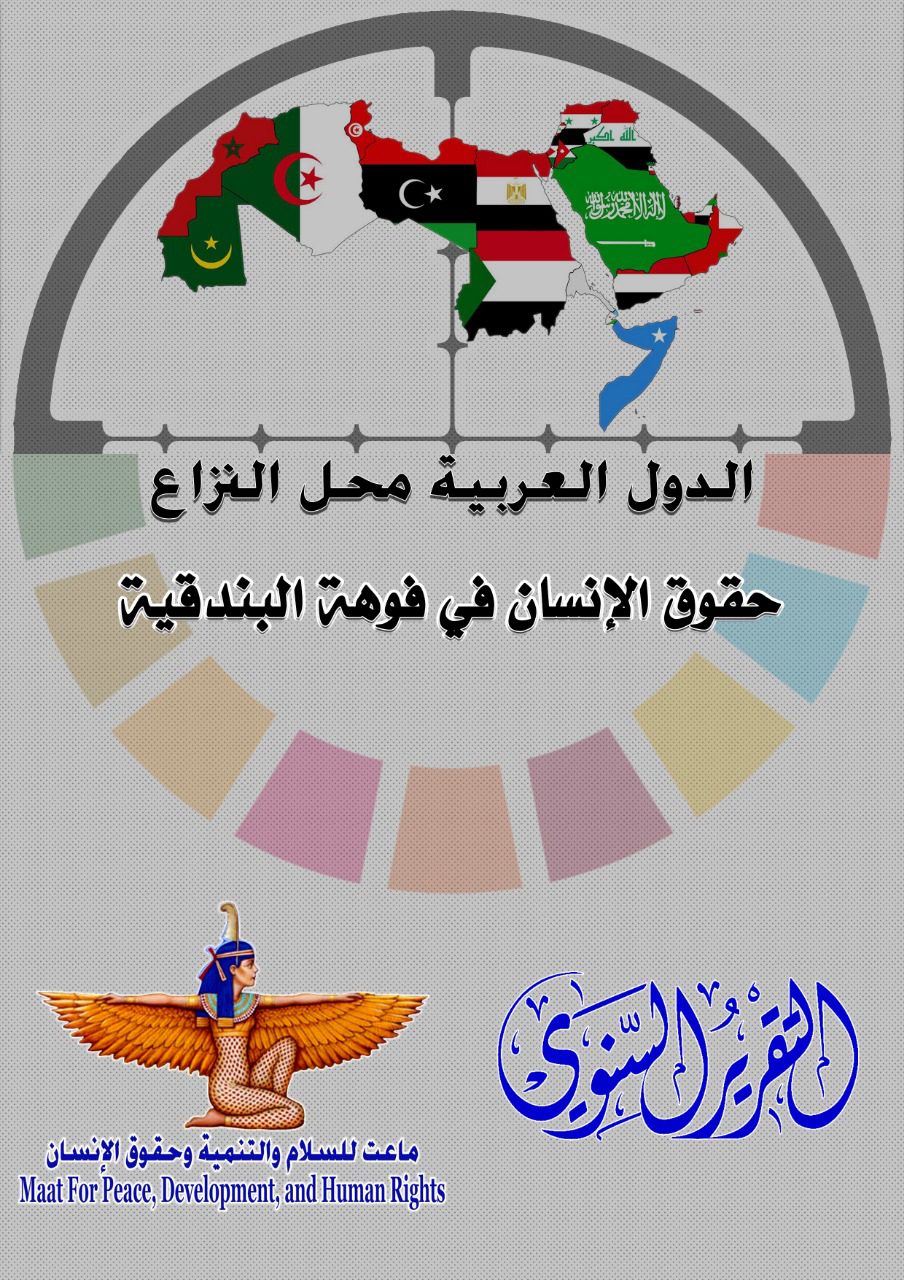Akil: There is no way to promote human rights except by ending conflicts and restoring stability and security
Sherif Abdel Hamid: Foreign interference is the first reason for the continuing conflicts in the region
Maat Foundation for Peace, Development and Human Rights released this morning, March 10, its annual report on the situation of human rights in the Arab region entitled “The Arab States in Conflict: Human Rights at the Bullet Point “Which monitors and analyzes developments and realities of the human rights situation in the Arab region during the year 2019, with a focus on conflict countries in the region.
The report, which came in four sections, dealt with the position of the Arab countries towards international mechanisms, and the extent of cooperation and communication with these mechanisms. It also shed light on the status of sustainable development in the Arab countries in conflict, in addition to the human rights situation in conflict areas and occupied territories, and the report clearly highlighted the impact of terrorism on the human rights situation.
The report referred to a number of points, in the forefront of which was the emphasis on the reciprocal and interdependent relationship between human rights and sustainable development. Where all the sustainable development goals are considered as inherent human rights. Thus, it can be said that international mechanisms and bodies and human rights charters and mechanisms provide an important framework for implementing sustainable development goals. Including the Human Rights Council, special procedures, the universal periodic review and treaty bodies.
The report emphasized that the international human rights mechanisms, even regional and local ones, have not yet been able to pressure the Arab countries in conflict to implement their obligations and commitments towards protecting and promoting human rights and work to end this conflict, which has derailed these rights. It did not find a fertile environment to ensure its respect, and did not find help from these mechanisms to ensure its implementation.
Ayman Aqil, head of Maat Foundation, said that the most prominent feature in 2019, which casts a shadow over the human rights situation from the ocean to the Gulf, is the blatant external interference from countries outside the region in the internal affairs there, after drooling, taking advantage of instability and civil conflicts to implement Its expansionist ambitions and ambitions at the expense of peoples, in which it found the appropriate environment to spread its extremist ideas; It supported with money and weapons the armed groups in these countries for the continuation of the conflict.
Aqeel added that the conflicts that prevail in some countries; It is the first obstacle towards achieving sustainable development in it, and thus there is no implementation of any human rights except by restoring stability and security again, and the affirmation of the right to security and the sixteenth goal of sustainable development related to peace, justice and institutions.
For his part, Sherif Abdel Hamid, Director of the Research and Studies Unit at the Maat Foundation, said: That the Arab region witnessed many events and developments during the year 2019, whether in its beginning or end, as it witnessed protests that led to the overthrow of the regime’s leadership in Sudan and Algeria, and widespread demonstrations in Lebanon and Iraq. The Arab countries are the subject of the conflict only, but rather sought to read and analyze these violations in their local, regional and international political contexts, considering that foreign interference is one of the most important factors responsible for the entry of many of the region's conflicts into renewed conflict episodes. The main regional powers are the same as the powers that create crises, and are directly or indirectly involved in feeding these conflicts.
shortlink: https://maatpeace.org/en/?p=26360












